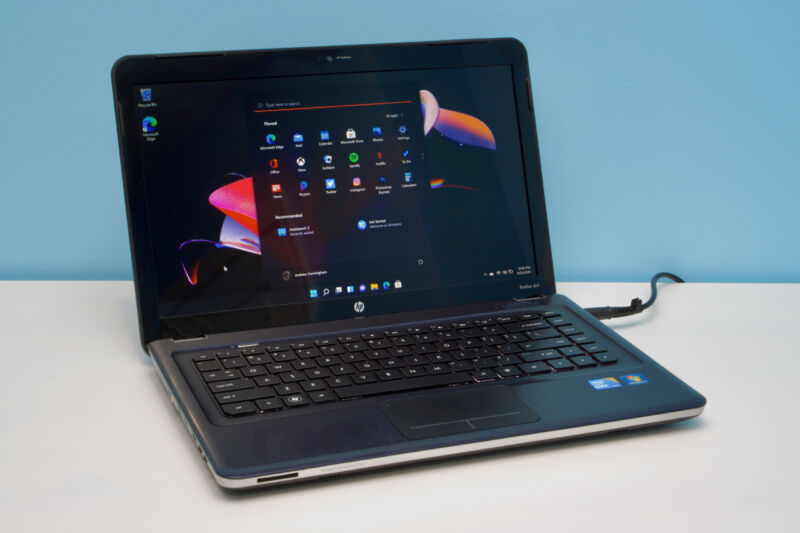
Microsoft began offering the Windows 11 22H2 update to Windows Insiders in the Release Preview channel earlier this week. But the update didn’t just go to people who were supposed to get it—it was also released to many PCs that don’t meet Windows 11’s stringent new system requirements.
As reported by Neowin, users on Reddit and Twitter whose unsupported Windows 10 PCs were signed up for the Release Preview channel were shown notifications that the Windows 11 22H2 update was available and that their PCs suddenly met the requirements to install it. This raised the possibility that Microsoft could be relaxing the system requirements for Windows 11, but the Windows Insider Program Twitter account confirmed Wednesday that the notifications were due to a bug and that the requirements were not changing.
Windows 11 generally requires an 8th-generation Intel Core CPU or AMD Ryzen 3000-series CPU or better, as well as Secure Boot support and TPM 2.0 for handling disk encryption and other security functions. PCs made and sold in late 2017 into 2018 can usually run the OS, while older PCs generally can’t. Microsoft argues that these newer PCs will run Windows 11 more reliably and that they support security features that older PCs don’t, though the cutoffs are still somewhat arbitrary.
Technically, you can install Windows 11 on pretty much any PC that can run the 64-bit version of Windows 10, as we found in our testing. Windows 11 22H2 is no more or less restrictive than the original version of Windows 11 on that front, and once you have it installed, it will work and receive updates more or less normally, perhaps with some annoying nag messages. But to date, Microsoft has been careful not to actually offer the update to unsupported PCs, requiring a manual upgrade or a clean install rather than allowing straightforward upgrade installs.
Windows 10 users who didn’t want the Windows 11 upgrade should be able to use the built-in recovery tools to roll back to Windows 10 without losing data.
https://arstechnica.com/?p=1859949

